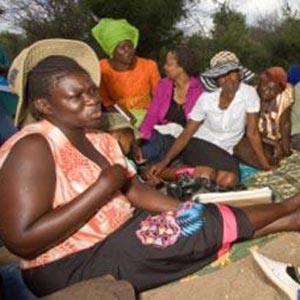
Unprecedented massive closures of companies in Bulawayo in the past decade have hit children and women the hardest. This section of society bear the brunt of the economic crisis brought about by job losses.
BY Our Correspondent
Many women and children in the city are resorting to street vending to eke out a living.
Bulawayo used to be the country’s hub of industry, but owing to prevailing economic constraints, more than 100 companies have closed shop.
Big companies such as National Blankets, Zeco and clothing companies such as Archer, Security Mills and Merlin have closed down or have relocated, leaving more than 25 000 workers jobless.
The worst victims of the de-industrialisation have been children, including babies that are now being breastfed on the streets by their vending mothers. Schoolchildren are now also forced to help their parents in order to raise money for food and schools fees. Children selling all sorts of wares have become common sight at football matches, city streets and shopping centres.
“My husband used to work for Archer Clothing company but was retrenched long back and I started selling vegetables for a living,” said Eunice Ndlovu (33) of Tshabalala. She said due to circumstances beyond her control, she was forced to carry her baby to the vegetable market even in bad weather.
“I know because of this cold weather, my baby risks catching various diseases if I take her to the vegetable market, but I have no option. There is no one else to look after her. His father can’t do that because he will be away doing other things to raise money,” said Ndlovu.
In an interview recently, Acting National President of Zimbabwe Schools Development Association (ZSDA) Xolisani Dlamini said the de-indusrialisation challenge in the country was affecting children more than anyone else in society.
“The unemployment challenge has actually affected children, especially here in Matabeleland where only 30% are paying school fees. This is because parents are prioritising food more than anything else,” he said.
“It looks like education is no longer a priority because the generality of the family is facing hardships,” said Dlamini. The ZSDA official added that, instead of children spending most of their time studying, they were forced into vending.
“We have a lot of children in the streets who are vending in order to get money to buy food. These children should be at the library studying but the situation is not permitting,” he added.
Dlamini said many families were now child headed after their parents left the country to seek greener pastures.
“About three quarters of parents are in the Diaspora and most of our families are now headed by children. This has made children vulnerable,” said Dlamini.
Bulawayo Provincial Education Director (PED) Dan Moyo echoed the same sentiments, saying the prevailing economic environment had condemned schoolchildren to vending.
“If you go to Eghodini bus terminus, you will see many children loitering and selling vegetables and a lot of other wares. It’s a serious problem that is affecting schoolchildren,” he said.
An official from a local non-governmental organisation that deals with women and children, said the closure of companies had plunged children into grinding poverty.
“Urban poverty is a reality just like in the rural areas. When the bread winner is no longer going to work, the means of survival disppears. What happens is that the education sector is affected and people now focus on food to survive. The girl child is mostly affected in many cases, especially when it comes to schooling,” said the official who requested anonymity.
The desperate situation has also forced children into street begging, a situation that endangers their very being.
“There is also a problem where young girls end up being lured into sex by older men as a way to eke out a living,” she said.
During a visit to Bulawayo’s Egodhini bus terminus near Lobengula Street — the hub of illegal vending — this paper’s news crew was greeted by a foul odour emanating from heaps of rotten vegetables on the pavement. Close to the mountain of garbage were children playing while the mothers were busy selling tomatoes.
“Children who spend most of their time with parents in the city pavements risk contracting diseases like flue, measles and cholera. It’s best for mothers to keep their children away from the streets,” said the official.
She said the solution to the challenge was for the communities and the government to assist the vulnerable children. The community has to identify those children and refer them to relevant authorities.
“The solution is multi-sectorial. Firstly we need certain institutions like churches or schools to come and help and at national level the government can intervene in terms of getting the details of children who are affected. The government has different social safety nets like Beam where they can assist those children,” she said.










